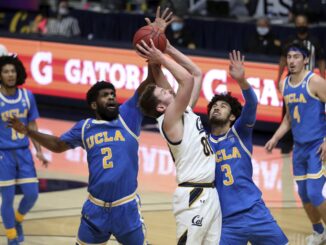
It’s been the summer of change in the world of college athletics. Between the monumental shift in rules that now allows players to make money on their name, image, and likeness to the conference realignment that shook college athletics to its core.
When the Southeastern Conference announced it would be adding Texas and Oklahoma to its league, the rest of the Power 5 conferences shuttered. Moves had to be made. The easiest way to combat the SEC’s now super-conference was to pillage the remnants of the Big 12.
While, in theory, the Big Ten and ACC could make moves, the potential suitor that made the most sense was the Pac-12. While the clear struggles in major revenue sports over the past decade provide a big enough reason to consider expansion, that isn’t the only reason why the Pac 12 should have made the call.
Unfortunately, the adage can be used here. The Pac 12 should’ve, would’ve, could’ve. The league’s commissioner, George Kliavkoff, announced last week that the conference would not pursue members of the Big 12 and would stick with their 12 current members for the foreseeable future.
The age of super conferences is already here, and the fact that the Pac-12 already announced their intentions of staying where they are puts the league in a vulnerable state. The ACC and Big Ten have been very quiet about the potential notion of expansion, and guess what, that’s smart. Showing your hand is the worst thing you could do, and while those leagues still have a chance to pounce if the opportunity presents itself, the Pac-12 is already out of it.
But it’s not only that; what about the alternative risk? The risk of potentially losing your current members due to inactivity. It might sound crazy, but the rumblings have already started. How do you ensure that Pac-12 bluebloods like Oregon, USC, and Washington don’t consider jumping to the Midwest? Well, with the leverage gone, anything is possible.
For Pac-12 fans, sadly, this isn’t new. The league has been on its back foot for nearly a decade compared to the rest of the nation’s biggest conferences, and with last week’s announcement, that seems like it will be the case for the next decade as well.



